How to Choose the Best Grass Seed for Your Area
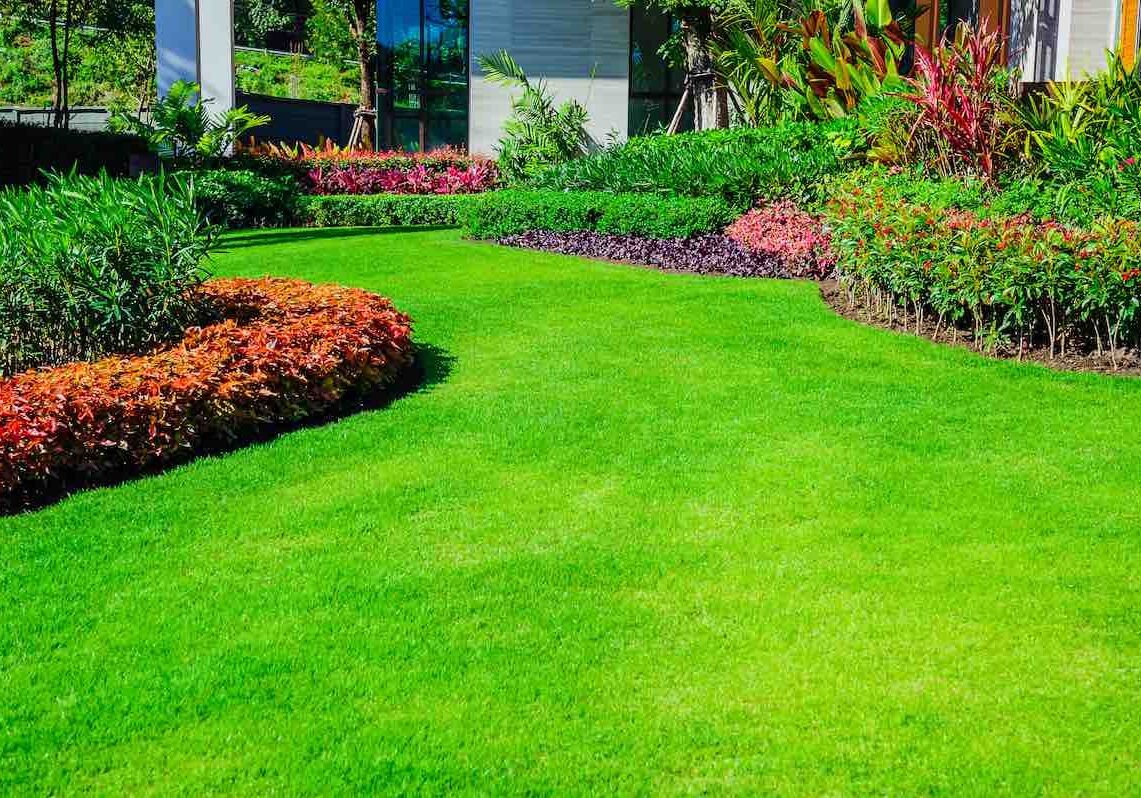
Share this article!
Choosing the right type of grass seed for your specific geographic area is one of the most important steps you can take to enjoy a lush, vibrant lawn that will look and feel great for years to come. Whether you’re a landscaper by trade, or a homeowner looking to create your own beautiful lawn, understanding your specific climate, and its role in supporting your lawn, is key.
The climate, soil conditions, amount of sun exposure your area receives, and intended use of the space all play a pivotal role in determining which grass variety will establish well and thrive. As a result, selecting the right grass seed for your location is a function of learning the ins and outs of these factors so you can choose the best seed variety for your lawn space and your needs. Follow the steps below to determine the right grass seed for your area.
1. Determine Your Climate
You might be familiar with your climate as a general concept, but to choose the best grass seed for your area, you’ll need to know your specific climate zone. There are many maps online you can use to find your exact location, and its orientation to one of the three grass climate zones.
The USDA recognizes many different ‘hardiness’ zones within the United States that can be used as a guide to understand your local climate. Climate zones 1 and 2 can’t typically support grasses of any kind, so we’ll focus on the zones where grass can grow successfully.
Best Grass Seed by USDA Plant Hardiness Zones
Hardiness zones are determined by factors such as the average annual minimum winter temperature, elevation, latitude, and proximity to coastal weather patterns. These zones are useful guides for selecting the best grass seed varieties for specific climate conditions.
Each zone represents a region with similar temperature and weather patterns, making it easier to determine which grass types will thrive. For example, in cooler northern zones like zones 3 to 5, cool-season grasses like Kentucky bluegrass and fine fescue are popular picks. In transitional zones like zones 7 to 8, a blend of cool-season and warm-season grasses like Bermuda grass and tall fescue can work well. In warmer southern climates like zones 9 to 11, warm-season grasses like zoysia grass and bahia grass will generally thrive in the hot and humid climate.
By considering your specific hardiness zone when selecting grass seed, you can increase the likelihood you’ll get the lush, green lawn you’re looking for.
Cool-Season Grasses – Zones 3 to 5
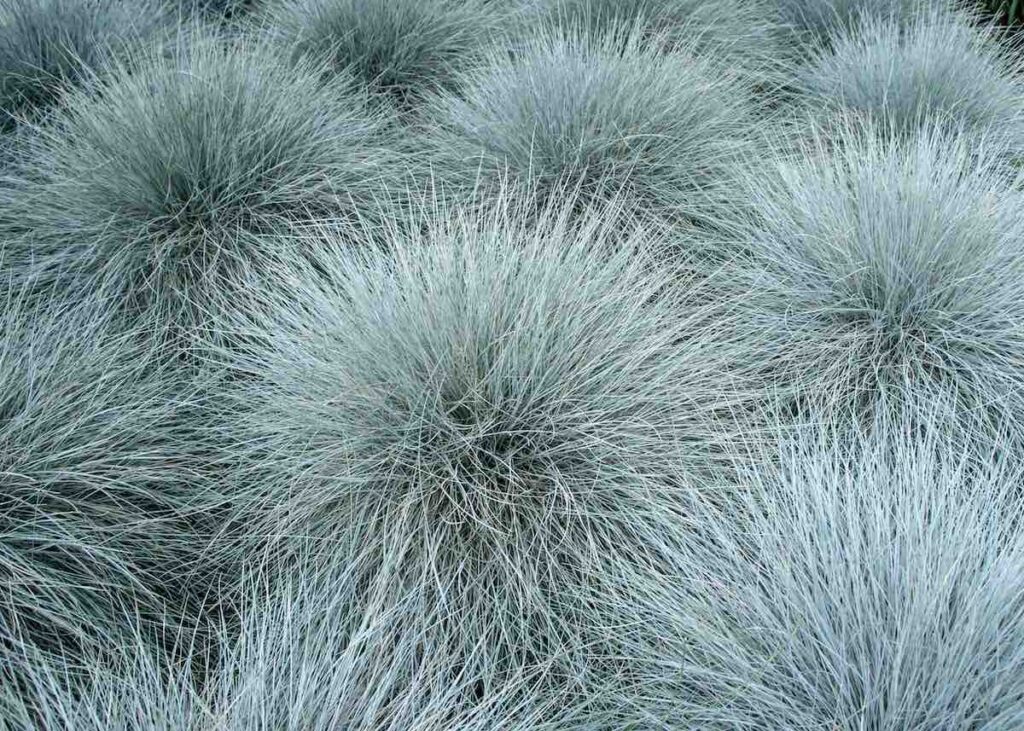
Zones 3-5 are characterized by overall cooler temperatures with distinct seasonal changes, so it’s no surprise that many cool cool-season grasses like blue fescue, blue oat grass, Kentucky bluegrass, and bent grass can thrive in these zones. Creeping red fescue and Chewing’s fescue are also cool season grasses that can be used successfully in these zones.
Kentucky bluegrass is one of the most popular choices for this zone because of its vibrant green color, fine leaf structure, and adaptability to a variety of soil conditions and climate extremes. Additionally, grass seed blends from the various cool season grasses can also provide hardy results that stand up to the elements, and look great doing it.
Summary of the best cool-season grasses:
- Kentucky bluegrass
- Blue fescue
- Blue oat grass
- Bent grass
- Creeping red fescue
- Chewing’s fescue
Transition Season Grasses – Zones 4 to 9
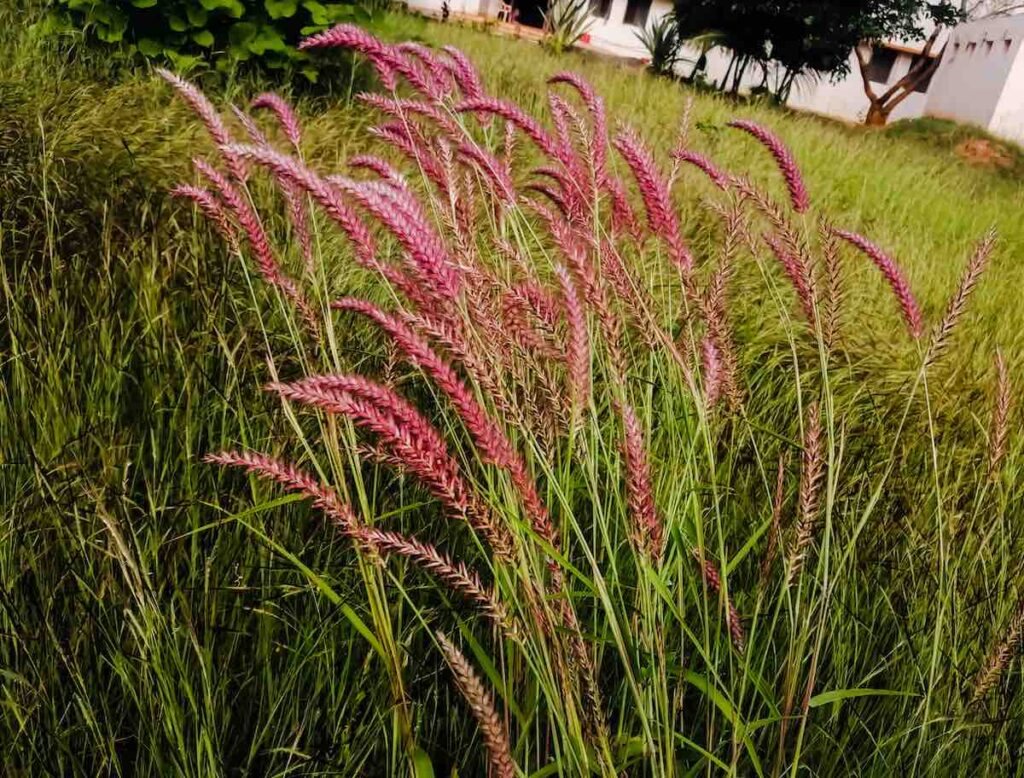
Transitional climate zones are those areas that typically have milder winters than their colder zone neighbors, and warmer summers. This means there are generally more choices for transition zone grass seed types that will thrive in your particular area.
Tall fescue and tall fescue mixed with bluegrass varieties are popular choices for these transition zones, as they are adaptable to temperature variations, and provide a lush, great-looking lawn. Kentucky bluegrass and switchgrass are also common in these zones, both for their aesthetic charm and flexibility with seasonal changes.
Summary of the best transition season grasses:
- Kentucky bluegrass
- Tall fescue
- Tall fescue mixed with bluegrass varieties
- Switchgrass
Warm-Season Grasses – Zones 9 to 11
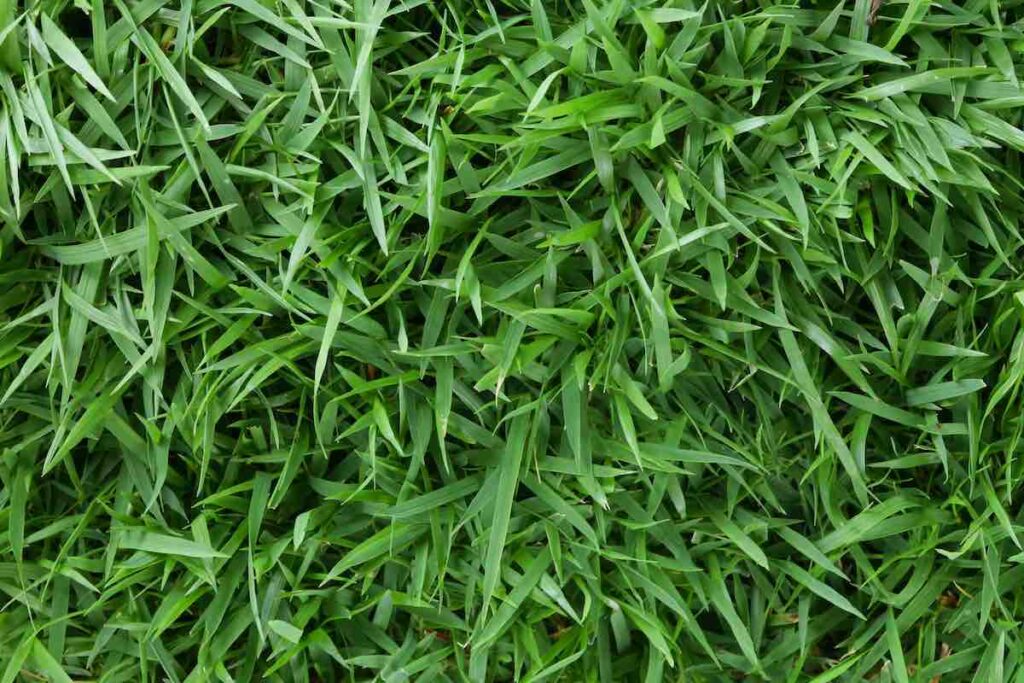
Long, hot summers and mild winters make climate zones 9 through 11 well suited for warm season grasses that are exceptionally heat and drought tolerant. These grasses also need to grow relatively quickly, in order to establish before scorching summer temperatures threaten their growth.
Bermuda and bahia grasses typify these warm-season grass qualities, and make reliable choices for these zones. Other popular options include zoysia grass and its low maintenance counterpart, centipede grass.
Summary of the best warm-season grasses:
- Bermuda grass
- Bahia grass
- Zoysia grass
- Centipede grass
2. Assess Your Soil Conditions
Best Grass Seed by Soil Type
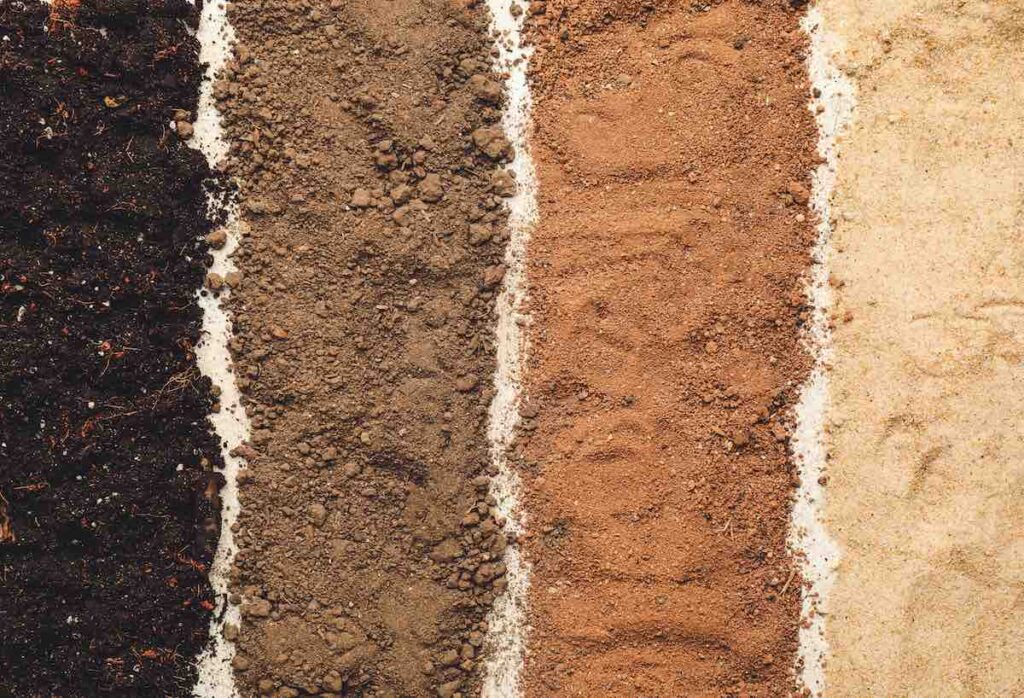
Understanding your soil type will help you better match the right grass seed to it. Soil type varies by its primary characteristics, such as chalky, clay, loamy, peaty, sandy or silty, and certain grass seed varieties will thrive in different types of soil. You can evaluate your soil type by getting it wet and observing how it looks and feels — chances are it will be fairly apparent which category your soil falls into. You can compare your soil to reference photos and videos of different types of soil to help you determine what you’re dealing with. A pH test will also tell you how acidic or basic your soil is, which can help you determine the best kinds of seeds for it, as well as the best types of fertilizer or additives to improve the soil’s health.
Grass Seeds for Sandy Soil
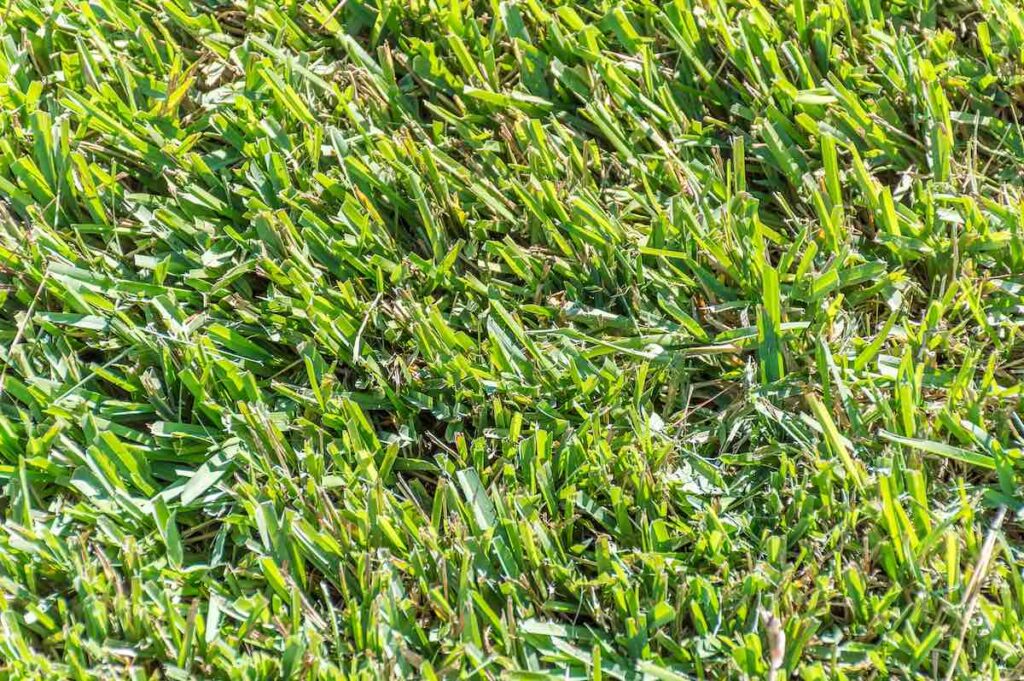
Grasses can be difficult to establish in sandy soil, so it’s especially important to choose the right variety for the soil conditions if they’re on the sandy end of the spectrum. In most cases grasses like: tall fescue, zoysia grass, Bermuda grass, bahia grass, and centipede grass will be able to grow in sandy soil. Sandy soil, by nature, has trouble retaining water and nutrients, so any hardy grasses or ground covers that are drought tolerant make great choices.
Summary of the best grass seeds for sandy soil:
- Tall fescue
- Zoysia grass
- Bermuda grass
- Bahia grass
- Centipede grass
Grass Seeds for Clay Soil
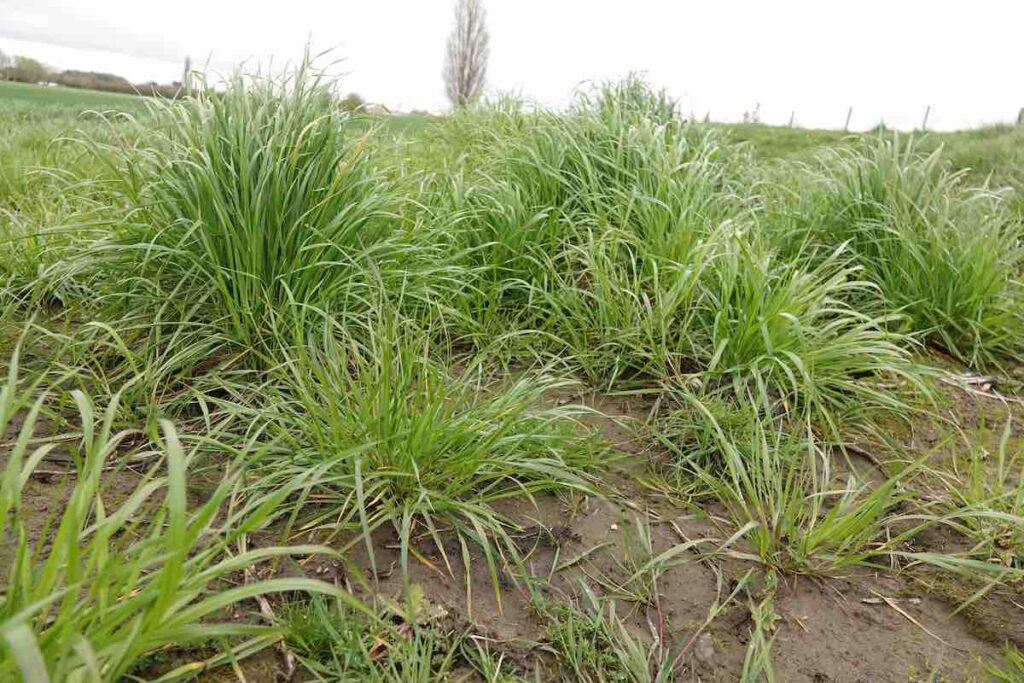
In contrast to sandy soil, clay soil is great at retaining both nutrients and water, which can make it a hospitable home for a variety of plants and grasses. The key with clay soils is to make sure it’s properly de-compacted, well-draining, and balanced — many clay soils also lack sulfur, which can be added with the right sulfur fertilizer.
Summary of the best grass seeds for clay soil:
- Tall fescue
- Bermuda grass
- Buffalo grass
Grass Seeds for Poor Soil
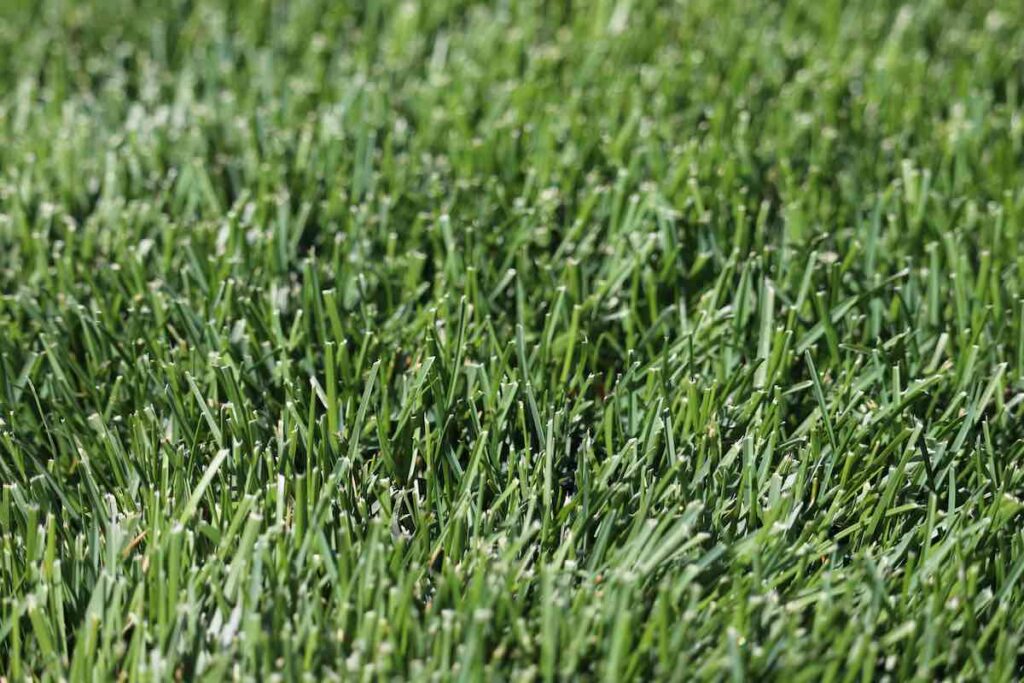
As you might expect, if you’re working with poor soil quality, you’ll need a resilient grass seed that can survive whatever your particular soil may be lacking. Consider having a soil test done to see why the soil is struggling, or where the major imbalances are, and this can further guide your choice about what grass seed may suit the unique characteristics of the soil. Adding fertilizers and soil boosters can also help ensure that grass seeds will thrive. Some grass seed varieties that are known to thrive even in particularly difficult soil conditions include:
- Kentucky bluegrass
- Perennial ryegrass
- Fescue grass
Grass Seeds for Alkaline Soil

Alkaline soil can make a fine home for grass, as long as it’s the right kind of grass that’s suited to the alkalinity. Some great grass seed choices for alkaline soil include:
- Perennial ryegrass
- Meadow bromegrass
- Orchardgrass
- Sainfoin (though technically not a grass, but a legume)
Grass Seeds for Acidic Soil
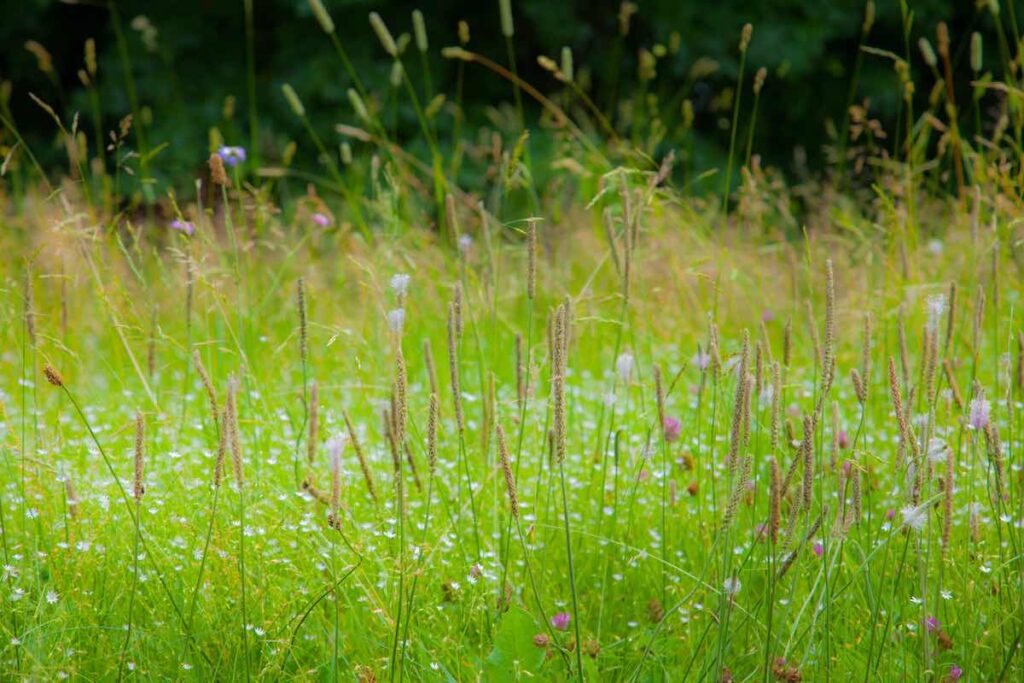
Acidic soil, like alkaline soil, can present its challenges for growing grass, but there are several varieties that will thrive in more acidic soils. These are generally:
- Fine fescues
- Turf-type perennial ryegrasses
- Turf-type tall fescues
Grass Seeds for Dry Areas
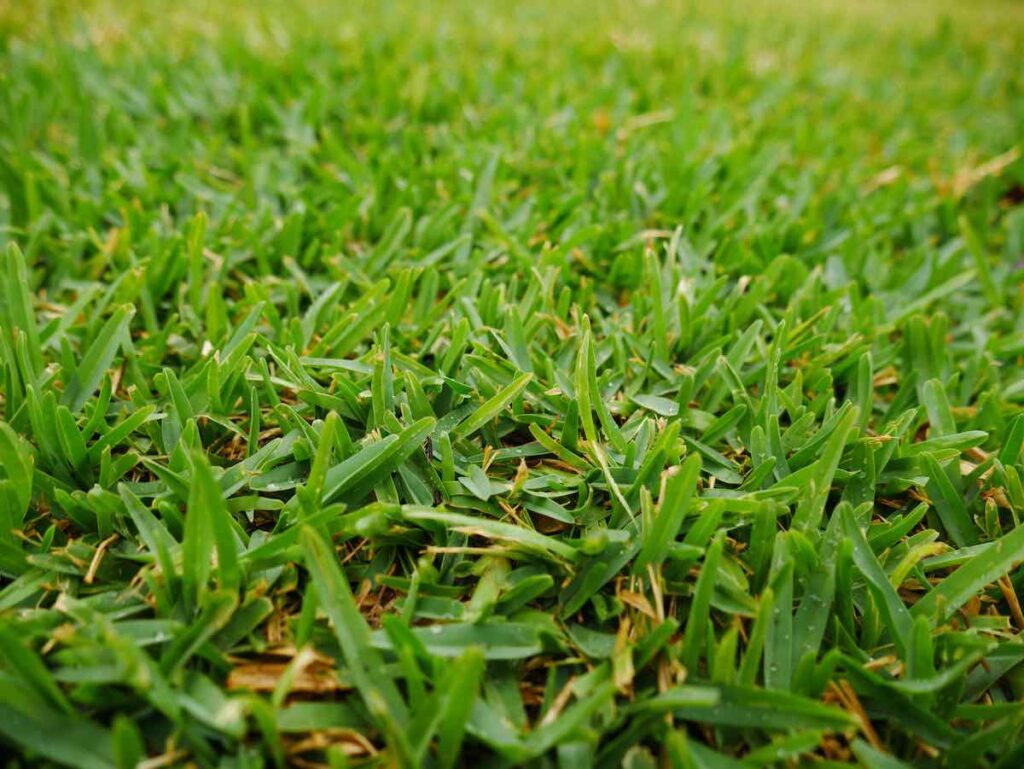
When seeding a dry area, it’s best to look for grass seed varieties that are drought-tolerant, or that are one of the best grass seeds for full sun. These types of grasses will generally have the heat tolerance needed to thrive in an area that is consistently dry or exposed to sun and wind.
Bermuda grass, buffalo grass, and St. Augustine grass are known specifically as drought-tolerant grasses, making them consistently popular choices for these types of challenging growing areas.
Summary of the best drought-tolerant grass seeds:
- Bermuda grass
- Buffalo grass
- St. Augustine grass
Grass Seeds for Wet Areas
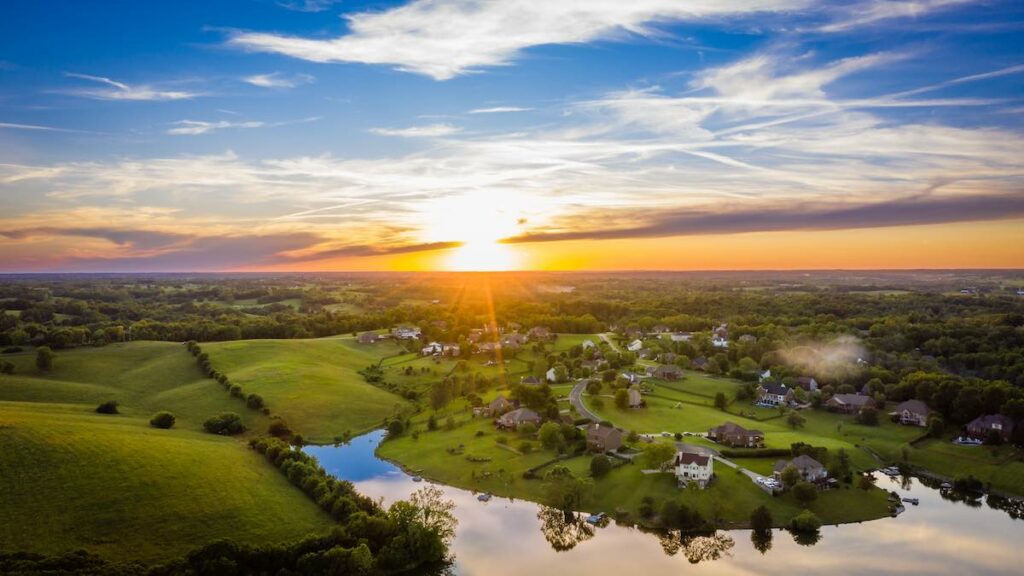
For grasses to thrive in wet areas they typically need to have two characteristics: shade tolerance and disease resistance. Many wet areas don’t get as much sun exposure as some grasses would like, and these conditions are often a breeding ground for diseases and fungus that can harm your lawn.
Kentucky bluegrass, fescue types and ryegrass are great choices for wet areas as they can stand up to these conditions well, and provide a healthy-looking lawn in the process.
Summary of the best disease-tolerant grass seeds for wet areas:
- Kentucky bluegrass
- Fescue types
- Ryegrasses
3. Assess Your Lawn’s Sun Exposure
Sun exposure plays an outsized role in choosing a grass seed type for your area. Many grass varieties like sun, but not too much, so it’s important to understand the level of sun exposure your particular area gets, and be able to match it to a grass seed type that corresponds to the sun level for the best results.
Best Grass Seed for Sun and Shade
Full Shade Grass Seeds
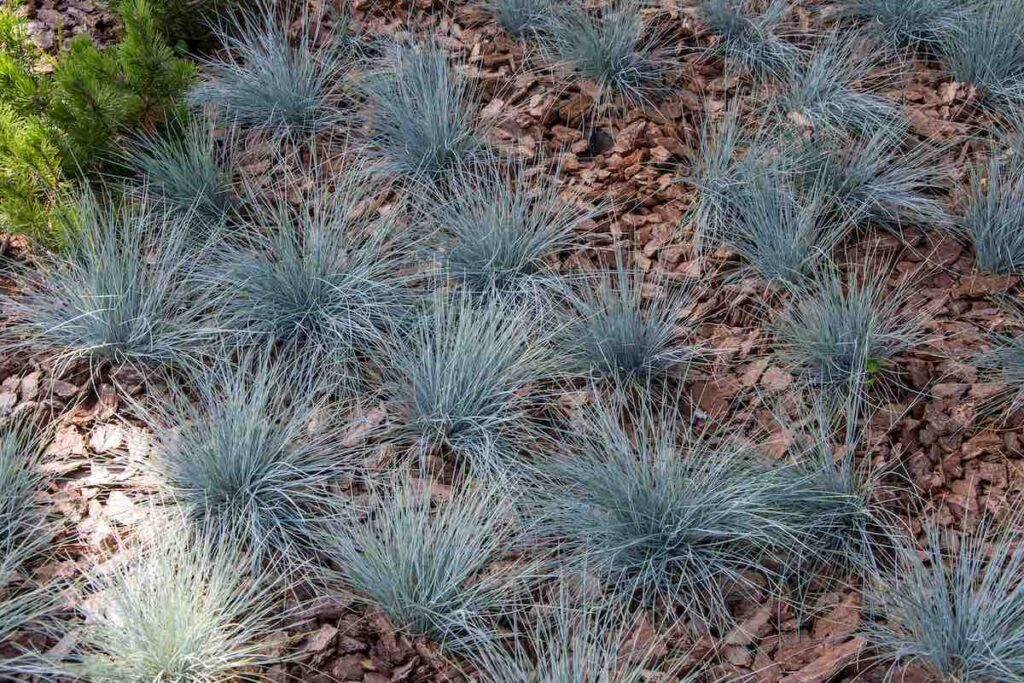
In shady areas the name of the grass game is choosing varieties that like limited sun. Fine fescue is a reliable performer in full shade, and one of the most common choices for these types of areas as a result. Tall fescues have similar characteristics to fine fescues, and can be some of the best shade grass seed choices, as well as ryegrass varieties.
Summary of the best grass seeds for full shade:
- Fine fescue
- Tall fescue
- Ryegrasses
Partial Shade Grass Seeds / Partial Sun Grass Seeds
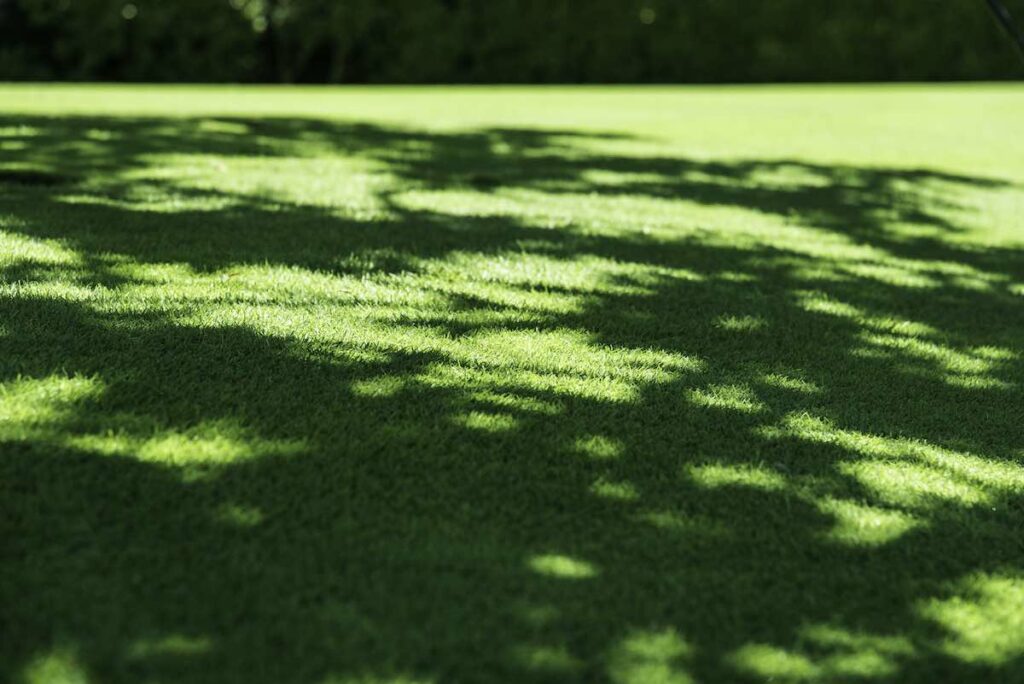
For areas that get a mix of partial shade and partial sun, choosing the right grass seed is key to getting a balanced lawn that can establish well and thrive in your area. Fine fescue blends, which often include creeping red fescue, Chewing’s fescue, and hard fescue, are great choices for partial sun or partial shade areas.
These flexible, dependable grasses are known for thriving in both shady and sunny areas, as well as combinations of the two. Fine fescues are also known for their low maintenance, which can make them well-suited for areas with variable light levels.
Summary of the best grass seeds for partial shade (or partial sun):
- Fine Fescue blends, including creeping red fescue, Chewing’s fescue and hard fescue
Full Sun Grass Seeds
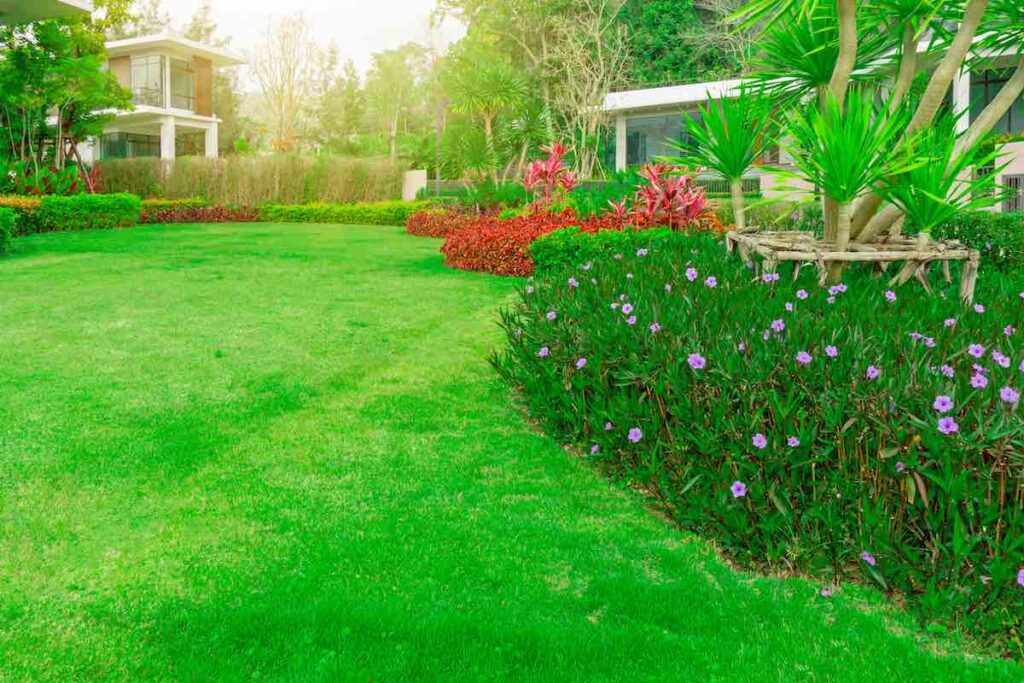
The best grass seed choices for full sun are generally heat and drought-tolerant, since these areas often risk drying out, browning, or scorching. Bermuda grass, exemplifying both heat and drought-tolerance, can fit the bill for full sun lawns and is commonly used in these kinds of areas. Zoysia grass can also be used with success in full sun, as it has a high heat resistance and can thrive in full sun environments.
Summary of the best grass seeds for full sun:
- Bermuda grass
- Zoysia grass
4. Consider Your Lawn’s Purpose
In addition to the conditions of your lawn area, it’s also important to think about what you envision using your lawn space for. Are you picturing garden parties? Kids playing tackle football or pick-up soccer? Is this likely to be a park space or multi-use outdoor area? Pinning down the purpose for the seeded space will give you the added tools to choose the right grass seeds for whatever the future brings.
Best Grass Seeds for Heavy Foot Traffic Lawns
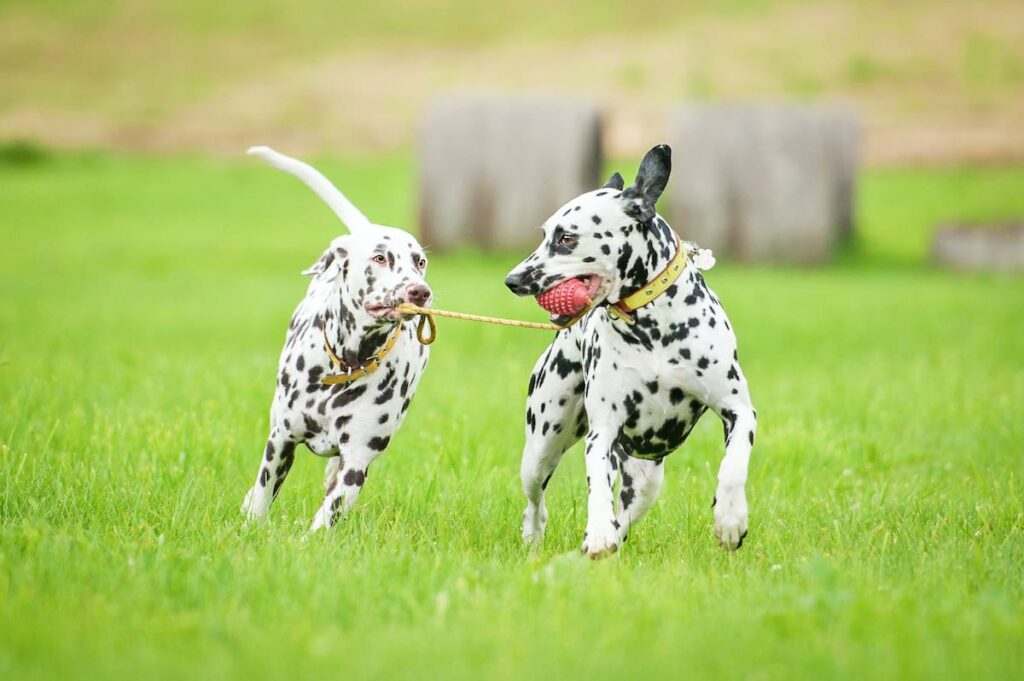
Foot traffic tolerance is an important quality in a lawn or turf area that is expected to be used by kids, dogs, sports, or other high-traffic activities. Consider how likely it is your area will experience any of these situations before choosing a grass seed type.
If it’s likely to be a well-used area, you’ll want to choose seeds that have a high level of durability and that can germinate quickly. Great choices with these qualities include perennial ryegrass and Kentucky bluegrass. Kentucky bluegrass is particularly hardy, it can stand up to periods of intense use and recover quickly.
Summary of the best high traffic grass seeds:
- Perennial Ryegrass
- Kentucky Bluegrass
Best Grass Seeds for Sports Fields

As high-use, high-traffic areas, sports and athletic fields require grasses that provide durability and performance so athletes can play as safely as possible on the surface. Time and again, parks services, stadiums, and ballparks use grasses like perennial ryegrass, Kentucky bluegrass, and Bermuda grass to ensure a great-looking, high-performing turf area.
Choosing between these varieties of grass should primarily be driven by the climate, as sports fields in the northern climate zones will want to stick with bluegrass or ryegrass while warmer zones may use Bermuda grass effectively for both performance and aesthetics.
Summary of the best high traffic grass seeds:
- Perennial ryegrass
- Kentucky bluegrass
- Bermuda grass (for warm climates)
Best Grass Seeds for Light Foot Traffic
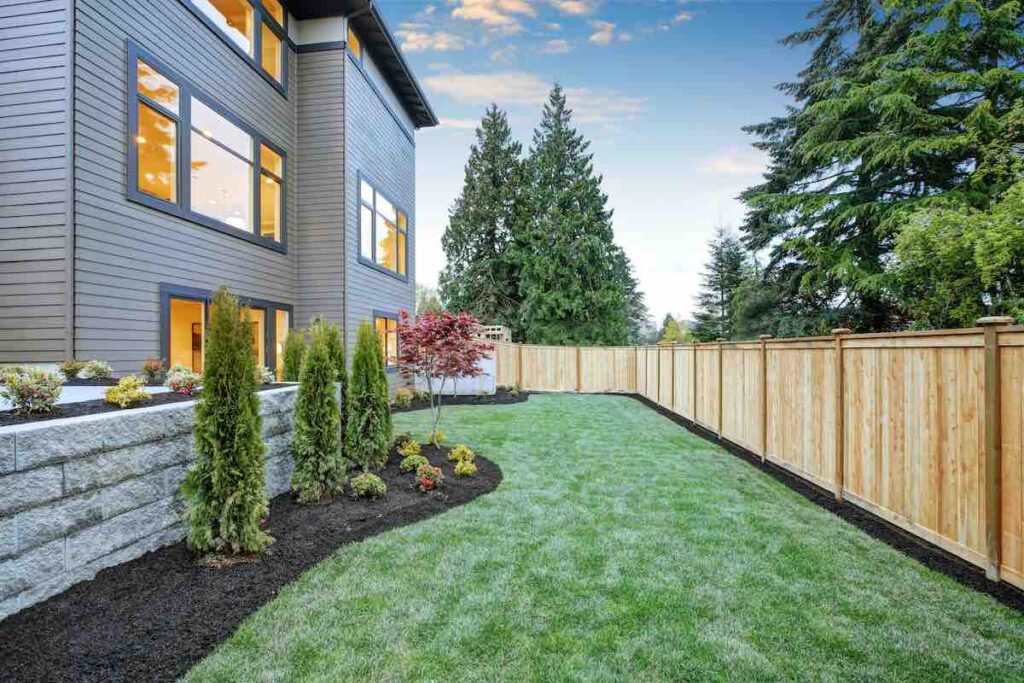
If low maintenance and great looks are the priorities for your lawn space, chances are you’ll have a few more options when it comes to choosing grass seeds for the area. Many grasses that are more ornamental in nature don’t hold up well under use, so if the area is generally just for looks, you can customize the lawn look just about however you like. Fine fescue grasses are often chosen for their distinct look, bright color, and fine texture, as well as their low maintenance and infrequent mowing needs.
Summary of the best low maintenance grass seeds:
- Fine fescue
Soil Conditions, Climate, Sun Exposure and Purpose Influence the Best Grass Seed for Your Area
Choosing the right grass seed for your area can be influenced by a variety of factors from soil conditions, and climate to sun exposure and the intended purpose of your lawn. Soil health, temperature, rainfall, the amount of sunlight your lawn receives, and whether it’s meant for ornamental landscaping, heavy foot traffic, or sports also play important roles in determining the best grass seed for your needs.
Considering these factors can help you confidently select the appropriate grass seed to get the most enjoyment and use of your lawn area. For more questions about the right grass seeds for your space, reach out to your local seed supply store.

